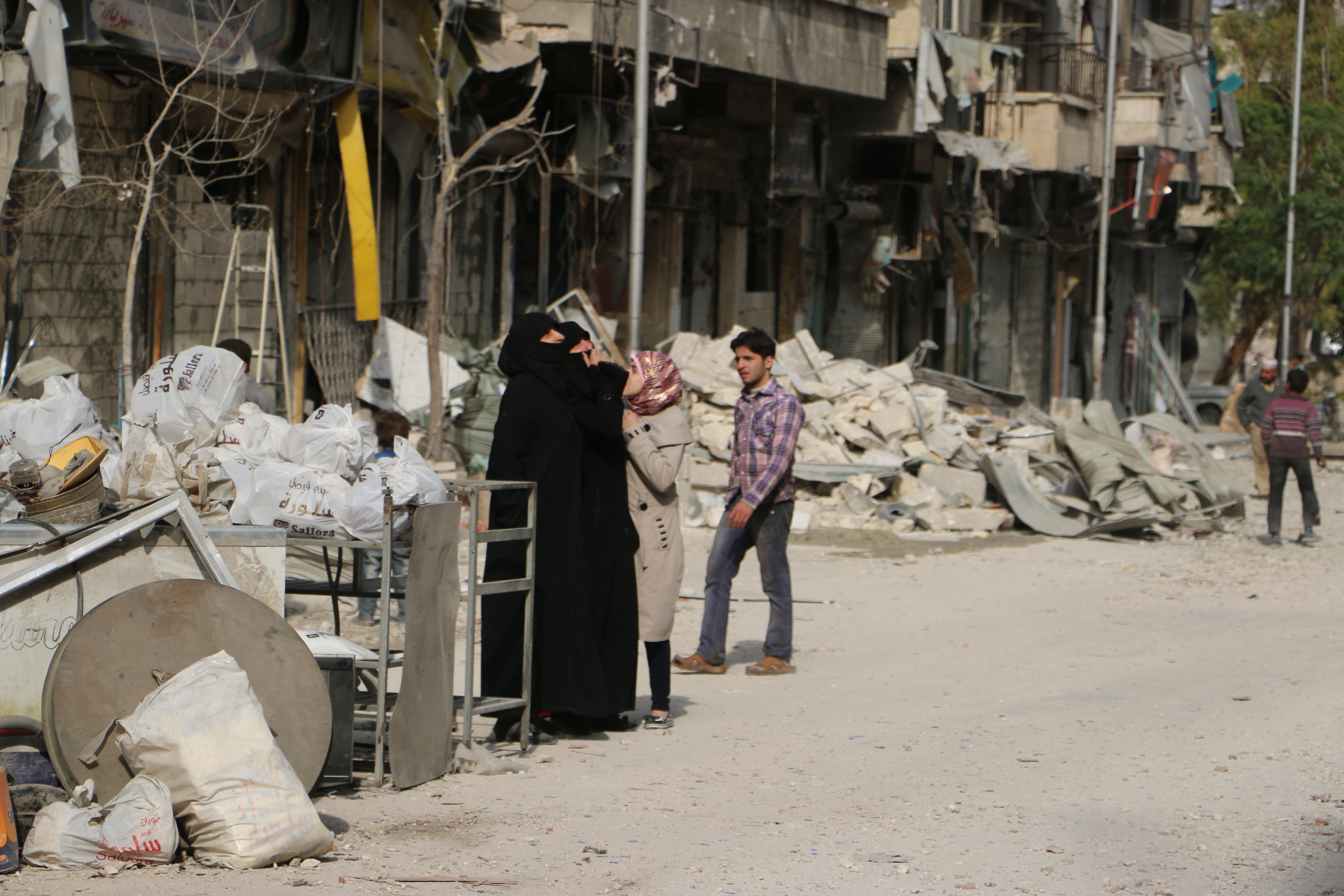Between Islamic State and the Regime

It was three o’clock in the morning on April 29, 2015. This would be my penultimate trip to regime-controlled Aleppo before I left Syria for good. Sitting in complete darkness because of a power cut, I heard the horn of the car that would take me to the city.
Even though I had left my home in the Al-Sheikh Maksoud Sharki area after the Free Syrian Army entered it in April 2013, I still kept my job working in the medical sector in regime-controlled areas.
Transport proved impossible, however – I had to spend seven to ten hours on the road each day – and I had nowhere safe to leave my daughters during my long absences.
Eventually, I had no choice but to move to my parents’ in-law house in the eastern countryside of Aleppo province, an area controlled by Islamic State (IS).
IS were not only imposing the strictest forms of Islamic dress but also insisted that women were accompanied by a brother, son, uncle or husband when travelling.
I could not ensure this as I was from another province and had no relatives in Aleppo. My husband was outside the country.
So every 20 days when I had to pass through the checkpoints of both IS and the regime, I relied on subterfuge.
On the day in question, everything happened as usual.
My usual driver arrived and honked loudly. When I came out and took down my khimar (black face veil) he asked me, “Did you find a male relative?”
My answer did not surprise him.
“No,” I said.
I looked inside the car; there was an old man, a woman and some children. Relieved, I said to the driver, “Problem solved.”
My plan was to convince IS fighters at the checkpoint that I was the daughter in-law of the old man. They were unlikely to suspect anything as long as I was in the presence of a big family of women and children. And that’s what happened.
On the al-Tabqa Isria road, after we left IS territory and entered the regime controlled area, I felt the other woman put a pack of cigarettes and a lighter in my hand. She asked me to light her cigarette.
Even though taking pictures is prohibited at army checkpoints, had I had the freedom and courage I would have filmed how women throw away their khimars as soon as they leave IS controlled areas.
Puffing her cigarette, the woman said, “I swear I was suffocating, as if there was no air for me to breathe, what about you?”
“The strong control the weak,” I replied with a sad smile.
At the first regime checkpoint, a different kind of suffering began.
The soldiers inspected our identity cards and asked questions such as “Why are you going to regime areas?”
The standard answers were, “To work, to study, to get paid or to go to the hospital.”
At each checkpoint – and there were nearly a dozen – they asked the same questions, mocked us and threatened us.
Most likely my identity card, which said I was from Daraa governorate, the birthplace of the Syrian revolution, raised the soldiers’ suspicions more than those of the other passengers who came from other regions.
On the day in question, they told me to leave the car at the entrance to Aleppo and took me into a room where they questioned me for half an hour.
The investigating officer did not forget to ask where I lived before I got married. The number of questions and the extent of the examination made me feel as if he was going to ask whether or not I had had breakfast before leaving home that day.
It was nearly nine o’clock in the morning. I had spent six hours on the road and had not slept at all. I had a long, hard work day ahead of me which would only end at midnight.
I was saved because the soldier was reassured that I worked in a government hospital. Maybe my direct and unequivocal answers also made him feel secure.
But he had no idea that my cell phone, which he forgot to ask for, contained a Facebook app and my private account with my real name and all my anti-regime and pro-revolution writings.
I was able to leave the room and the investigation after he gave me back my identity card and checked that his list of wanted people did not contain anyone with a name similar to mine.
I returned to the car and we entered Aleppo, as I repeated over and over again, “I survived. Yes, I survived.”
Hoda Abu Nabut (36 years old) studied journalism at Damascus University and worked in the medical sector until she left Syria in May 2015. She lives in Istanbul, Turkey and works in journalism.
